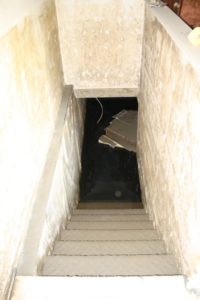Louisville East, KY – Causes of Basement Flooding Listed by Restoration Experts
Posted in: Industry News

Want to learn why your basement floods so often? Read on to find out the common causes of basement flooding!
A flooded basement can be a nightmare to deal with. When water starts pooling in your basement, it can cause damage to your foundation, lead to mold growth, and ruin the belongings and appliances that you’ve kept in it. This is why you must prevent water from seeping into your basement. The best way to do that is to learn all the causes of basement flooding so that you can prevent this unfortunate event from taking place.
Here are some common causes of basement flooding:
Poor Basement Sealing
If your basement tends to flood during rainstorms, then it might be due to poor basement sealing. When the foundation of a house is being built, the tiles or base of the basement needs to be sealed properly. If it’s sealed improperly, it will eventually deteriorate and allow groundwater to seep into the basement.
Badly Installed Weeping Tiles
Every house needs to have a proper drainage system built around it. This system, also known as weeping tiles, enables the water to move away from your home. This ensures that the water doesn’t find its way into the basement and other areas of your house. If the weeping tiles aren’t installed properly or they fail to work, then your basement will experience flooding, particularly during heavy rainfall. To determine if this is the root cause of your basement floods, have this system inspected by professionals.
Poorly Installed Downspouts
Downspouts are added to houses to direct water away from their foundation. When you install a downspout in your house, make sure it’s at least 1.5 to 2 meters away from your basement wall. Also, you need to ensure that it drains away from your house, either toward the street or your backyard. If the downspout is broken or parts of it are missing, then water will start to pool next to your house and will eventually seep into your basement through the cracks in your foundation.
Gutter Debris
Gutters also play a key role in keeping water away from your basement. When a gutter is clogged with twigs, leaves, seedpods, and other pollutants and debris, it starts to overflow. The water overflowing from the gutters will pool around your home and seep into your basement.
Defective Sump Pump, Hot Water Tank, and Pipes
Your basement houses three major sources of flooding – sump pump, hot water tank, and pipes. If even one of these breaks or bursts, your basement will start to flood. You must get your sump pumps and hot water tanks inspected by an expert annually. This will allow you to spot any faulty equipment beforehand. As for the water pipes in your basement, they can fail due to various reasons such as freezing temperatures, poor workmanship, and age.
Sewage Backup and Poor Grading
A severe sewage backup and poor grading around your house can also cause basement flooding. All houses need to have their grading slope away from the structure to ensure that water doesn’t pool around them. This will significantly reduce the risk of basement flooding.
If your basement starts to flood due to any of the aforementioned reasons, then you must hire a water damage restoration company right away. They will have the right skills, experience, and tools needed to extract the water from your basement and dry it thoroughly and swiftly to prevent further water damage.
Return to: Louisville East, KY – Causes of Basement Flooding Listed by Restoration Experts
Social Web